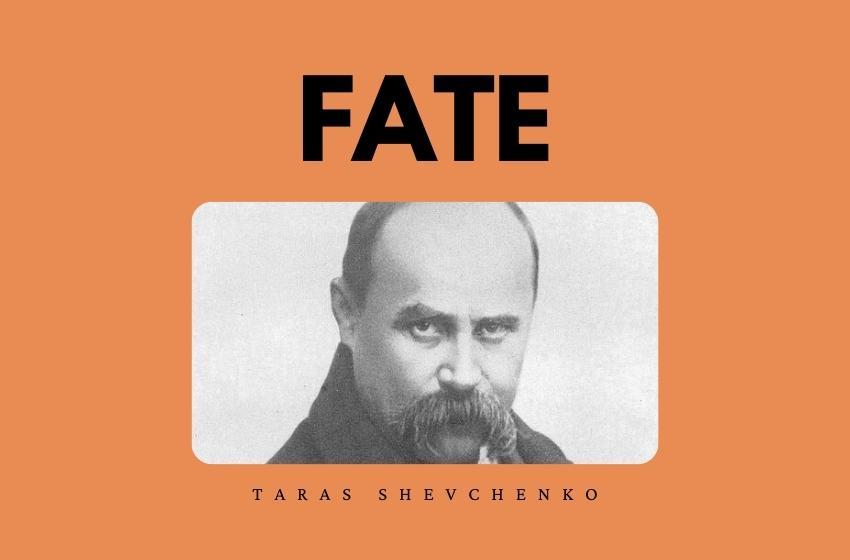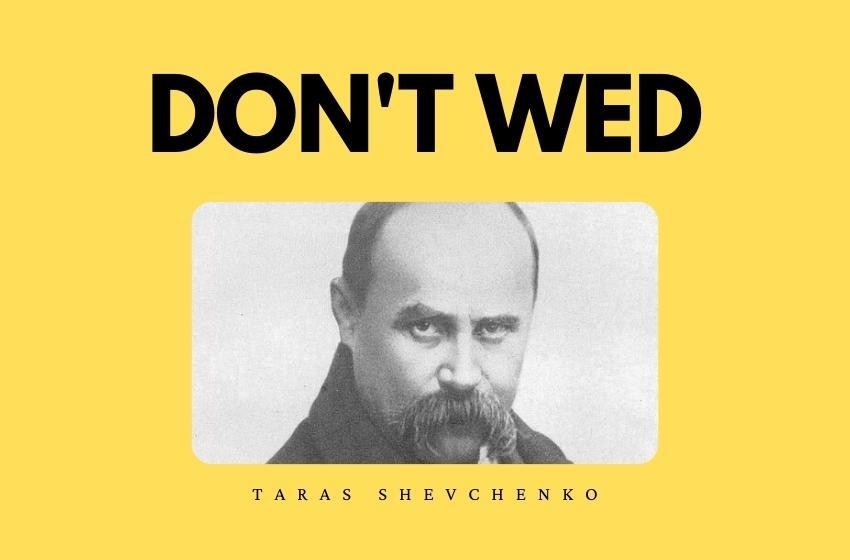The way Paustovsky saw the Black sea, a city with suburbs and its inhabitants he described in his works. But it is no less interesting to see Odessa and feel the mood of that time, captured not in works of art, but in diaries.
The trying winter of 1921, a year of Civil War and famine, found me in Odessa. I was living in what had been the second-floor fitting rooms of the former "Alshwang Stores," which sold ready-made clothes.
I had three rooms with long wall mirrors which both the poet Eduard Bagritsky and I tried very hard to detach from the walls so that we could barter them for something to eat at the market. But of no avail. After all our drastic handling not one of the mirrors was even cracked.
There was no furniture in the rooms, except for three cases with mouldy shavings. Fortunately the glass door could easily be removed from its hinges. Every night I took it off and placed it on two of the cases and made a bed for myself—and a slippery bed it was too.
I would wake up several times in the night because the old thing I used for a mattress kept sliding to the floor under me. As soon as the mattress started slipping down I would open my eyes and lie as still as possible, afraid to make the slightest movement, foolishly hoping that in that way I may induce the mattress to stop playing tricks. But it kept slipping slowly but surely, quite scornful of my stratagem.
This may seem funny now, but it wasn't then, with a violent northeastern wind blowing from the frozen sea and sweeping along the granite pavements. It had not snowed once and that made the frost even more biting.
In the former fitting room there stood the universal "bourzhuika" of the Civil War times—a very inadequate stove made of tin. But there was no firewood. Even had there been any, it would have been useless to try to heat three huge rooms with that poor makeshift of a stove. I only used it for boiling "carrot tea," for which purpose a few old newspapers sufficed.
My third case served as a desk. In the evening, wrapped up in all the warm clothes I possessed, I would read Georgy Shengeli's translations of Jose Maria Heredia's poems by the light of a little wick floating in oil. These poems were published in Odessa in that grim year of famine, and I must say they helped to keep up our spirits. We felt as staunch as the Romans and would repeat a line written by Shengeli himself which ran something like this: "Friends, we are Romans, we are being bled white."
We were not being bled white, by any means, but we were young and full of the joy of living, and we found the cold and hunger trying at times. But we never grumbled.
The ground-floor of the "Alshwang Stores" was occupied by an Arts and Crafts Co-operative, a bustling, somewhat suspicious outfit managed by a grumpy, elderly artist known in Odessa as the "Ad King." This co-operative took orders for signs, ladies' fancy hats, wooden sandals (in "Greek style" with wooden soles and a few leather straps), and for film posters, done in glue paint on crooked bits of plywood. One day the co-operative had a piece of good fortune: an order for a figurehead for the steamer Pestel, which was to go on its first voyage to Batum. It was the only vessel the Black Sea could boast of in those days. The figurehead was made from sheet iron with a gold floral ornament painted on a black background. Everyone helped with the work, even Zhora Kozlovsky, the militiaman, came off his beat to look in now and then. At that time I was managing editor of The Seaman, a local newspaper. There were many young writers on its staff, among them Valentin Katayev, Eduard Bagritsky, Babel, Yuri Olesha and Ilya Ilf. Among the older and more experienced writers, Andrei Sobol, kind, restless and always excited about something, was a frequent visitor at the office. He once brought us a short story, disorderly and all mixed up, but undoubtedly a work of talent and dealing with an interesting subject.
We all read it and it put us in an awkward position. To print it in the sloppy way it was written was impossible. Yet no one had the courage to suggest to Sobol that he rewrite it—something he could never be persuaded to do. This was not because it would hurt his vanity (as a matter of fact Sobol had no vanity at all) but because, being temperamental and high-strung, no sooner was he done with a piece of work, than he lost all interest in it.
What to do with the manuscript was something that worried us all. With us was our proof-reader, Blagov, an elderly person, the ex-managing director of Russkoye Slovo, one of tsarist Russia's most widely read newspapers, and formerly the right-hand man of Sytin, the well-known publisher.
Blagov, quiet, and somewhat self-conscious about his past, was so staid and respectable-looking that he contrasted strangely with the host of bedraggled, boisterous young people filling our office.
I took Sobol's manuscript home with me for a second reading. At about ten o'clock that night Zhora Kozlovsky, the militiaman, knocked on the front door. It was pitch black in the town, the streets were deserted with only the wind howling fiercely, particularly at the crossroads. After twisting a newspaper into a long thick band and lighting it, I went to open the massive front door, bolted by a rusty length of gas-pipe. It was no use taking my makeshift lamp; even staring at it was enough to put it out, let alone the least movement of air. I had but to fix my gaze on it when it would at once begin to crackle plaintively, flicker and slowly die. That is why I even avoided looking at it.
"A person here to see you," said Zhora, the militiaman. "But don't you think I'm going to let him in without your vouching for his identity. Remember, the shop on the ground floor's got three hundred billion rubles' worth of paints alone."
Considering that my salary at the newspaper came to a billion a month (at market prices I could buy no more than 40 boxes of matches with it), the sum Zhora mentioned was not at all as fabulous as might be imagined.
Blagov was at the door. After I told Zhora who he was, he let him pass, promising in two hours to drop in to warm up and drink a cup of hot water.
"I've been thinking about that story by Sobol," said Blagov. "It's a talented piece of writing. Something should be done about it. I'm an old hand at the newspaper game, as you know, and I wouldn't like to see a good story slip out of our hands."
"What do you suggest?"
"Let me have the manuscript. I swear I won't change a single word in it. I'll have to stay in your rooms because being out at such a late hour is risky. I'll go over the manuscript in your presence."
" 'Go over'—that means you're going to edit it?" I asked.
"I've already told you what I intend to do, I shan't delete a single word, nor shall I add anything."
"Then what are you going to do?"
"You'll see."
I was puzzled. Here was Blagov, calm and stolid as ever, and yet he brought an air of mystery into my rooms. I was intrigued and agreed to give him a free hand.
He drew out of his pocket the stub of an unusually thick, gold-striped candle, lit it, put it down on the case which served as a desk, sat down on my worn-out valise and with a flat carpenter's pencil bent over the manuscript.
At about midnight Zhora Kozlovsky dropped in. I had just boiled some water and was brewing our "tea"—this time thinly sliced roasted beets instead of the usual strips of dried carrots.
"I'll have you know," began Zhora, "that from the street you look like a pair of bloody counterfeiters. What's your game anyway?"
"We're just fixing up a story for our next issue," I replied.
"Well, I'll have you know," Zhora repeated, "that any other militiaman would have checked up on you. So you'd better thank God—of course, there is no God—that I'm on the beat and you've got to do with me, a lover of culture, and not just any plain bobby. As for counterfeiters, I can tell you there are some real sharks at that game. They'll take a hunk of manure and make dollars out of it and a passport into the bargain. I heard tell that they have a marble cast of a hand of remarkable beauty lying on black velvet cushion in the Louvre, in Paris. Whose hand do you think it is? Sarah Bernhardt's? Chopin's? Vera Kholodnaya's? You've guessed wrong. It's the hand of Europe's most notorious forger, his name's slipped my mind. They cut his head off but kept his hand, as though he were a violin virtuoso. Well, what do you think of that?"
"Not much," I replied. "Have you any saccharine to spare?"
"Yes," replied Zhora, "in pills. I'll let you have some."
It was morning when Blagov finished working on the story and he wouldn't show it to me till it was typed out at the office.
When I finished reading the story I gasped. It was in crystal-clear and smooth prose, vivid and lucid. Not a shade left of the old crammedness and tortuous circumlocution. And, what was more, not a single word had been deleted or added to the manuscript.
I looked at Blagov. He was smoking a fat cigarette of a Kuban blend of tobacco as black as tea and grinning.
"Why, that's a miracle!" I cried. "How did you do it?"
"All I did was put the punctuation marks in the right place. Sobol's punctuation is atrocious. And then I changed the periods and paragraphing. That made all the difference. Pushkin spoke of the importance of punctuation, you know. Punctuation marks are like music symbols. They are there for cohesion, for getting the correct balance between different parts of the sentence."
The next day when the story appeared, Andrei Sobol swept into the office hatless, as was his custom, his hair dishevelled and a fire in his eyes that was hard to fathom.
"Who touched my story?" he boomed. Swinging his stick in the air, he brought it down with a bang on a desk littered with files of newspapers from which clouds of dust at once rose up.
"Nobody touched it," I replied. "If you like you can check it with the original."
"It's a lie, a damn lie," retorted Sobol. "I'll find out who it was."
A storm was brewing; our more timid comrades began quickly to retire from the room. And as usual the voices attracted our two typists who rushed in tapping with their wooden sandals.
"I touched your story," began Blagov in a quiet 'matter-of-fact voice, "if by 'touching' you mean putting the punctuation marks where they belong. Besides, as the paper's proof-reader, I was only doing my duty."
Hearing this, Sobol dashed up to Blagov, seized both his hands and shook them heartily. A minute later he was hugging Blagov and kissing him three times in the Moscow fashion.
"Thanks," he said, very much agitated. "Thanks for the lesson you have taught me—a little too late in the day, I'm afraid. I feel like a criminal when I think how I used to mutilate my writings."
In the evening Sobol, who had somehow managed to get hold of a half-bottle of cognac, came to my rooms. Blagov, Eduard Bagritsky, and Zhora Kozlovsky, when relieved from his beat, were there too and we had quite a celebration, drinking to the glory of literature in general and punctuation marks in particular.
We all agreed that a full stop in the right place may work wonders.
1931
Translated by Susanna Rosenberg





















